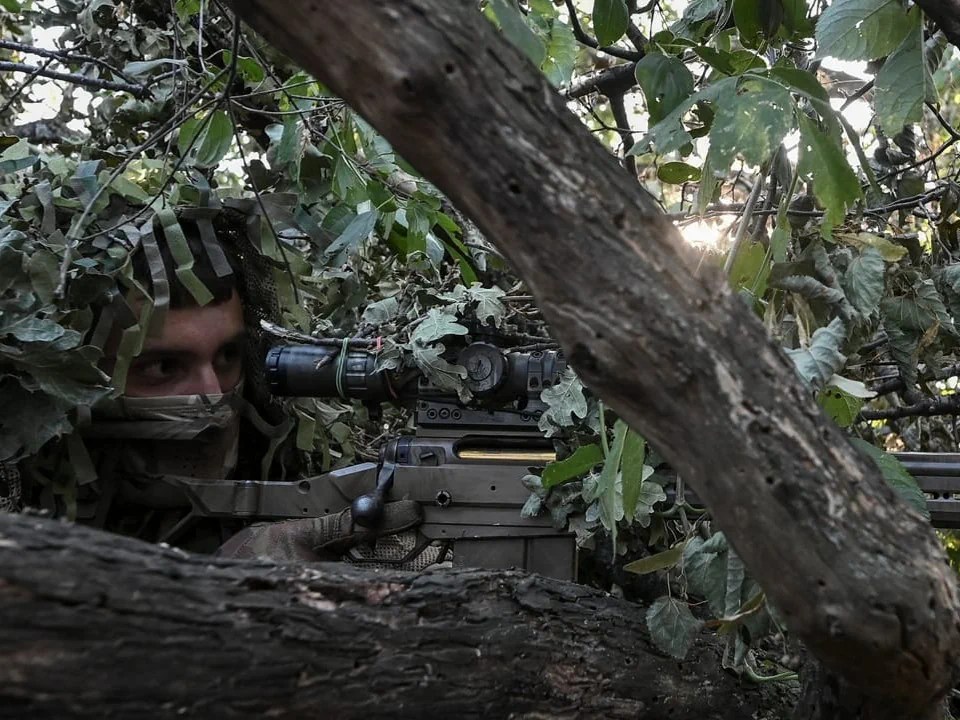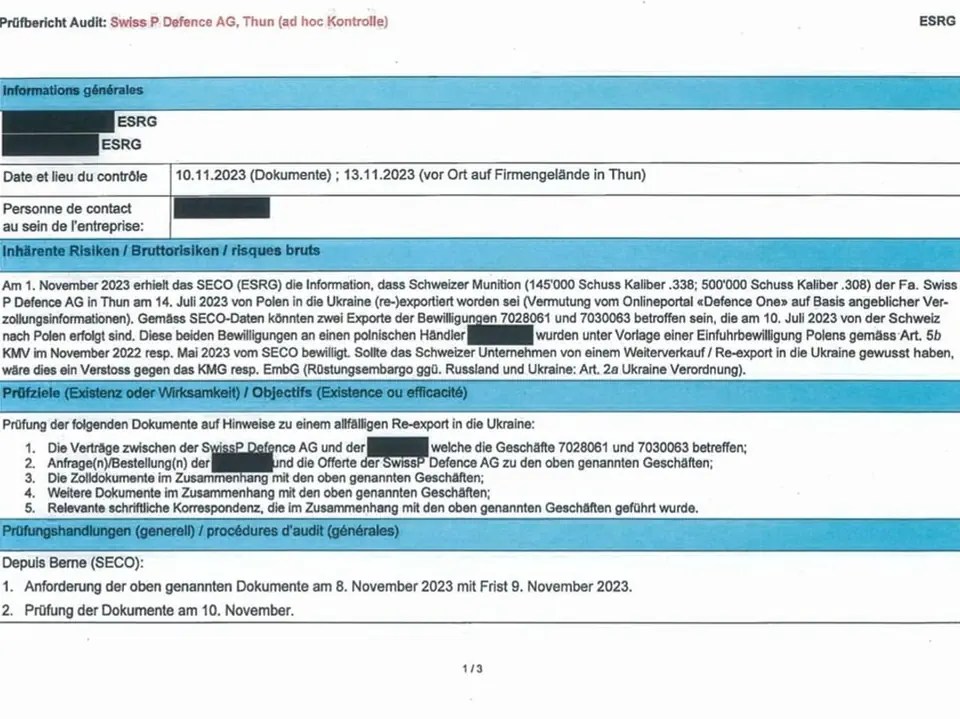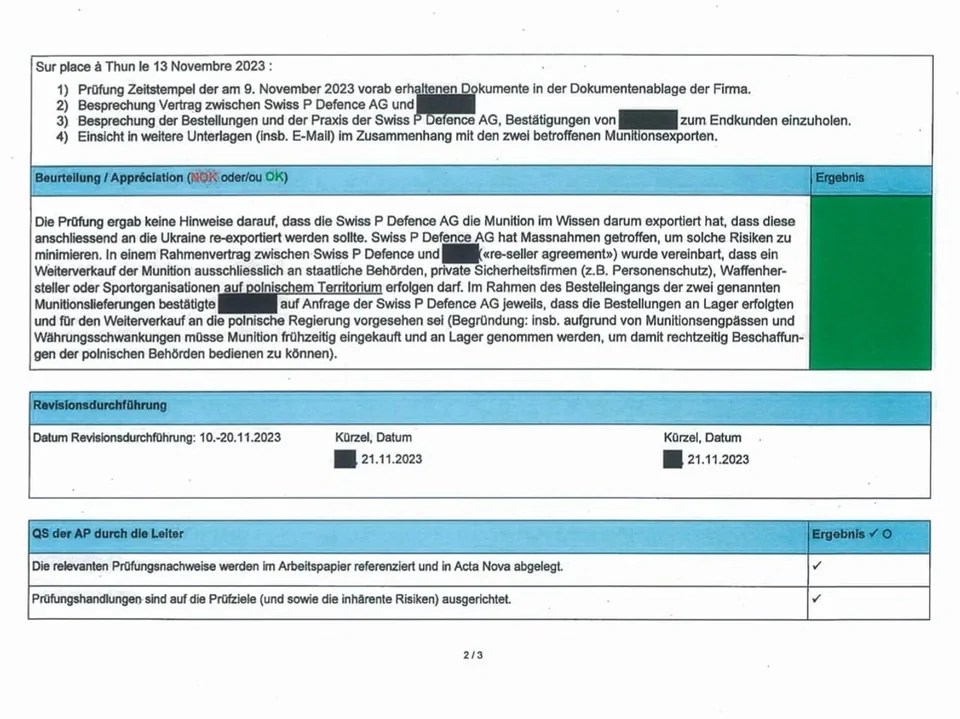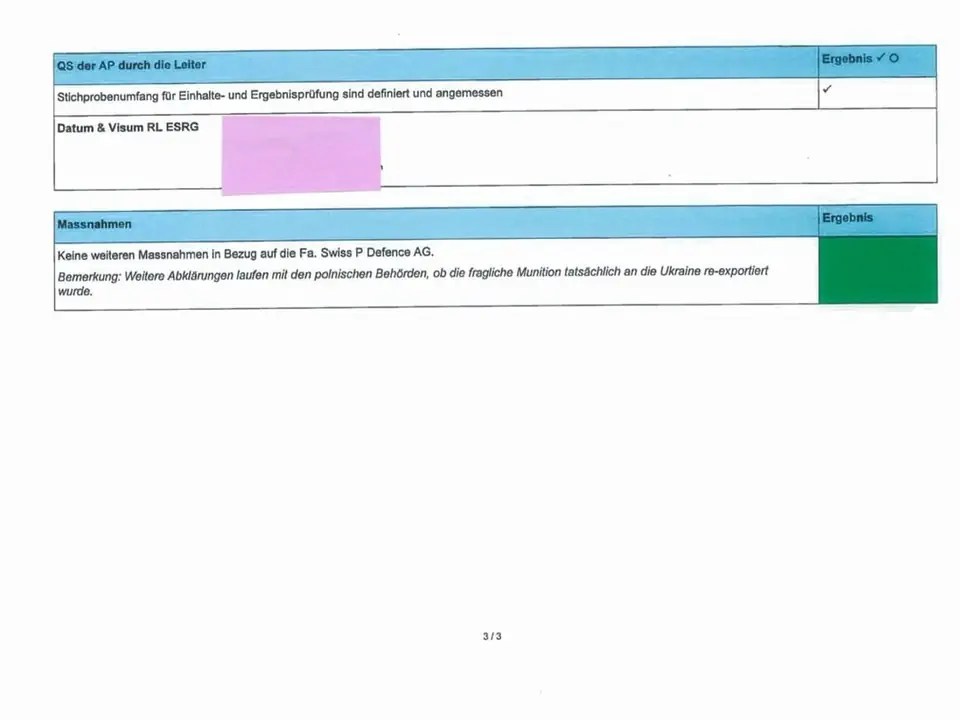
Polish firm blacklisted for breaching Swiss arms embargo

The Swiss State Secretariat for Economic Affairs (SECO) has taken unprecedented action against a foreign arms company for breaching export rules. The Polish firm UMO SP has been blacklisted after it resupplied Swiss ammunition to Ukraine in violation of Swiss arms embargo policies.
In July 2023, Swiss P Defence, a Thun-based ammunition manufacturer, delivered 145,000 rounds of 0.338-calibre sniper ammunition and 500,000 rounds of 0.308-calibre ammunition to UMO SP. Four days later, the Polish company re-exported the ammunition to Ukraine, contravening an agreement to restrict its use to Polish territory. This re-export violated Switzerland’s strict policy of not supplying arms to conflict zones.
SECO has now barred all further exports to UMO SP. A spokesperson stated that “exports to the Polish company in question will no longer be authorised until further notice.”
Investigation clears Swiss P Defence
The case was first reported by Neue Zürcher Zeitung (NZZ) in November 2023, based on information from the Defence One blog. Following this, SECO conducted an investigation to determine if Swiss P Defence was complicit in the breach.
The resulting audit revealed no evidence that the Swiss company knowingly facilitated the re-export. Swiss P Defence had implemented safeguards to ensure compliance, including a contractual agreement limiting the ammunition’s use to Poland. SECO inspectors concluded that the breach was solely the fault of UMO SP.
Swiss P Defence has not commented directly on the export freeze but stated that it “always and exclusively supplies its customers within the framework of applicable Swiss laws.”
Industry reaction
The Swiss arms industry association, Swissmem, has supported SECO’s decision. Matthias C. Zoller, Secretary General of Swissmem’s armaments division, called the move “reasonable” but expressed concerns over the impact of losing European clients in a tough market. He noted that “every customer that is lost carries weight.”
Politicians have reacted positively to the SECO ban. “SECO acted correctly, because what has happened is a de facto circumvention of our neutrality,” stated Josef Dittli, member of the Radical-Liberal Party.
The Polish company had not adhered to contractual agreements with the Swiss company and delivered ammunition anyway. For Dittli, this is where the problem lies. What is needed is better handling so that the aim of Swiss legislation cannot be circumvented via third countries. In cases like this, Swiss legislation is sufficient, adds Dittli. “In other cases, and especially for the future, it is completely inadequate because it would mean that our own defence industry would receive far fewer orders.”
For Dittli, it should be possible in the future for democratic states that bought Swiss war materiel to re-export it under certain conditions. “For countries that have an export control regime comparable to that of Switzerland, the non-re-export declaration should be limited to five years,” says Dittli. A corresponding amendment to the War Materiel Act is currently being planned. The consultation expired at the end of October 2024.
Possible loophole in the law?
For Zurich Social Democratic Party member Fabian Molina, SECO’s intervention in the ‘Swiss P’ case is also the right thing to do. “It is unacceptable that Swiss legislation is not complied with by foreign players. Measures are needed to show this: This is not acceptable,” he said. Unlike Josef Dittli, Molina is of the opinion that there may be a legal loophole in such cases. “There is obviously a need for action here, otherwise these cases would not have arisen.”
The aim of the War Materiel Act is to ensure that Swiss weapons do not end up in wars or armed conflicts. What is needed is better handling so that the aim of Swiss legislation cannot be circumvented via third countries.
UMO SP declined to comment on specific transactions, citing confidentiality agreements, but stated broadly that all dealings comply with official requirements.
This case underscores Switzerland’s firm stance on arms export controls and its commitment to enforcing non-proliferation policies.
According to research by Swiss public television, SRF, a similar case took place in June 2023: Three air pistols from the Ticino manufacturer Morini ended up in a hunting shop in Moscow via an Indian company. This was revealed by Russian customs data prepared by the company Import Genius, which specialises in trade data. According to the arms embargo, such sporting weapons may not be exported to Russia either. “The ban on sanctions covers weapons of all kinds,” writes a SECO spokesperson.
According to Morini, the company was unaware of the re-export. It writes that as a producer or distributor, it is not possible to track what happens to a product after it has been sold: “And certainly not in a foreign country or on another continen,” the company stated.
The Indian company did not respond to SRF’s enquiry. SECO considers India to be a potential means for circumventing transactions with Russia. Export applications to India are therefore also scrutinised from this point of view.
It is massively damaging to the Swiss defence industry if weapons or ammunition end up in war zones via third countries, says Matthias C. Zoller. He is secretary general of the armaments division of the industry association Swissmem. “Swiss companies try to do everything in accordance with the law and do everything possible to ensure that this doesn’t happen – and misconduct by a foreign customer damages the entire image of the industry.”
Adapted from German by amva

In compliance with the JTI standards
More: SWI swissinfo.ch certified by the Journalism Trust Initiative





























You can find an overview of ongoing debates with our journalists here . Please join us!
If you want to start a conversation about a topic raised in this article or want to report factual errors, email us at english@swissinfo.ch.